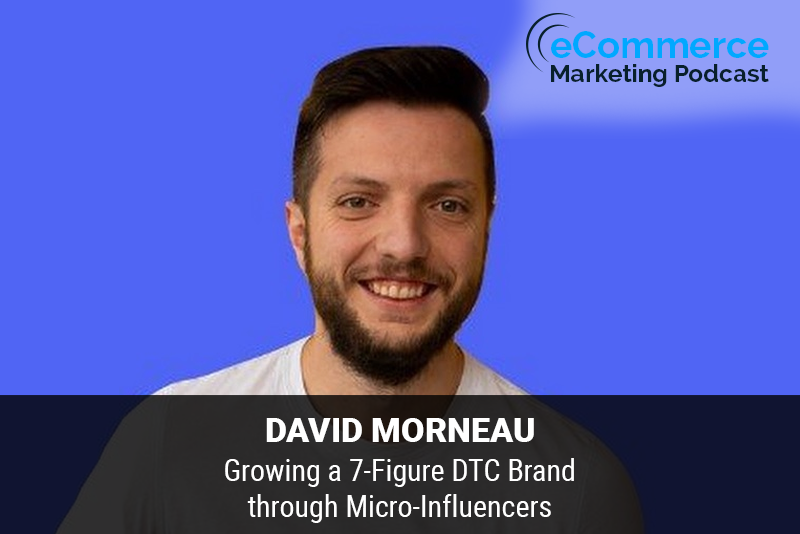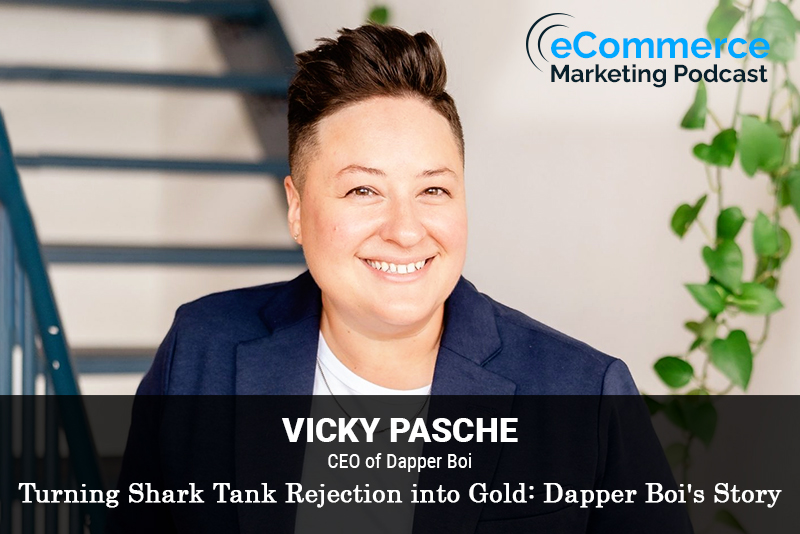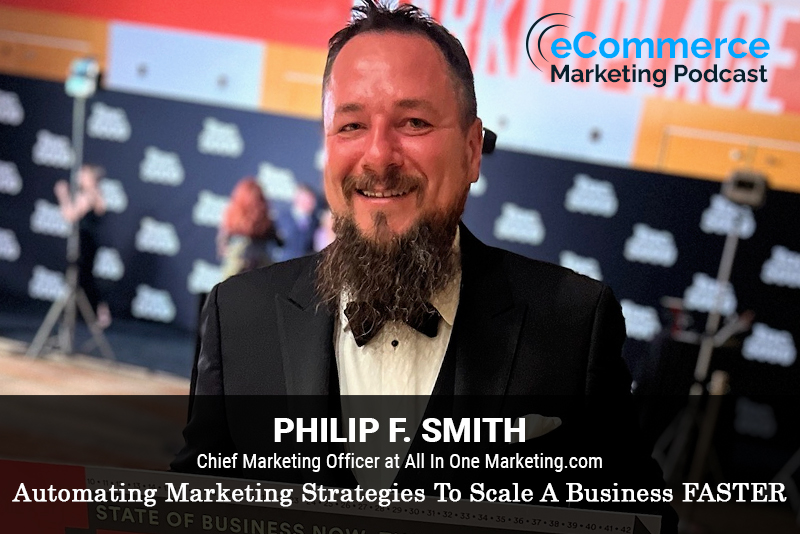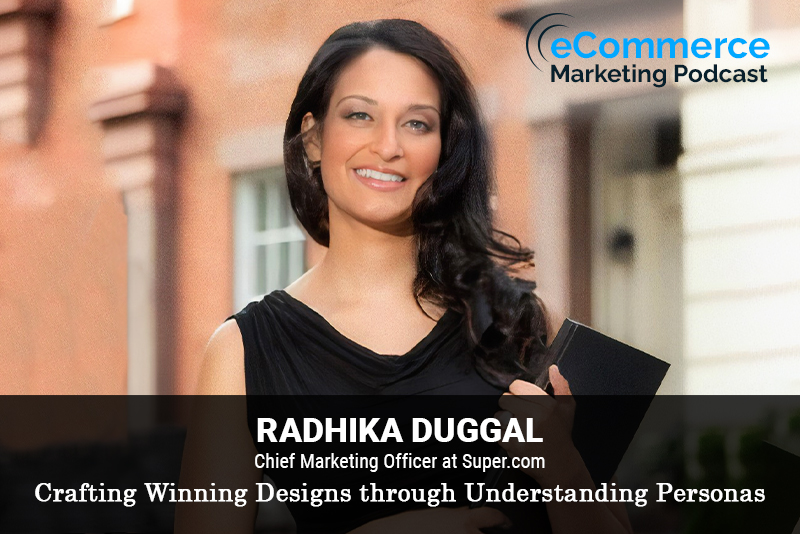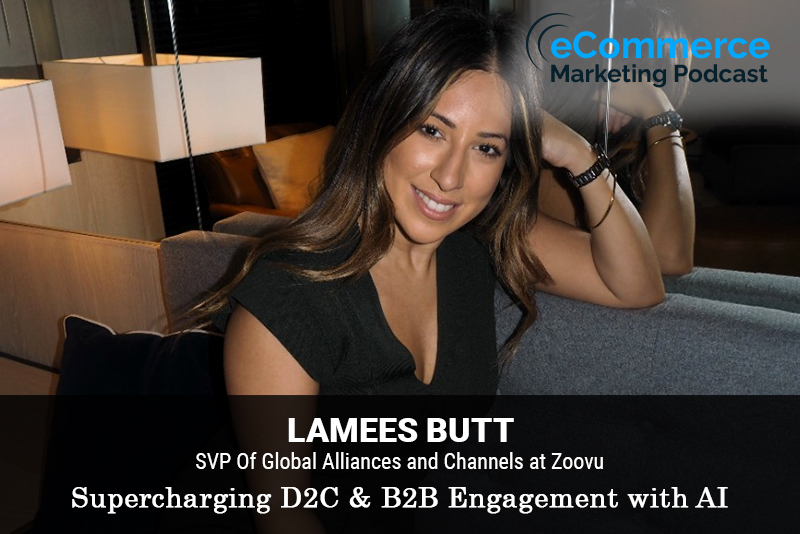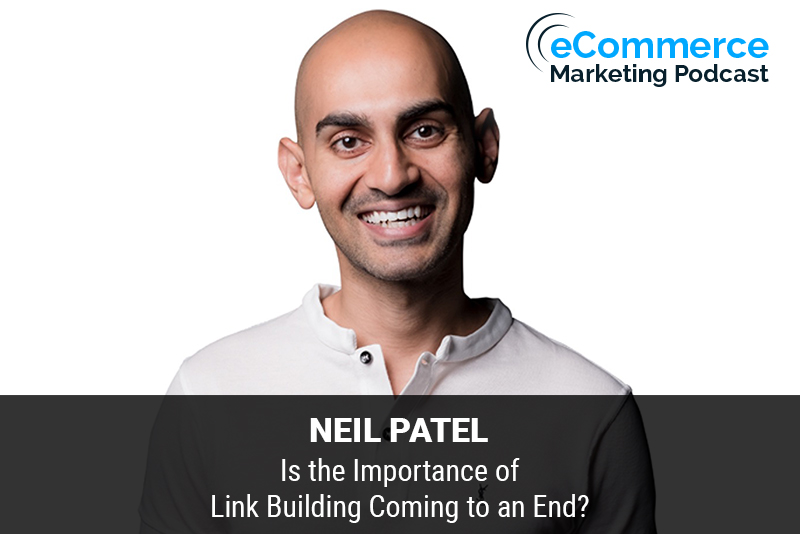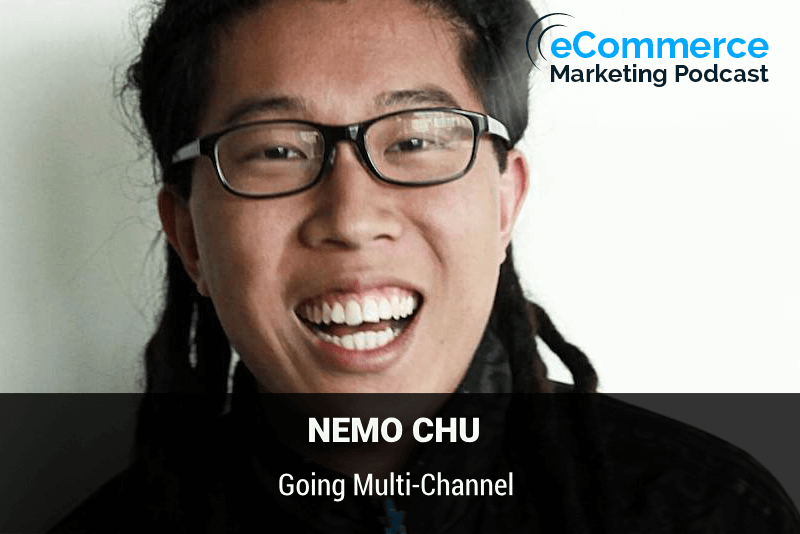
eCommerce Marketing Podcast
The eCommerce Marketing Podcast walks you through everything that goes into ecommerce marketing — from inbound marketing to paid advertising to conversions. Learn the strategies top marketing experts use to grow their businesses.
Growing a 7-Figure DTC Brand through Micro-Influencers – with David Morneau
byArlen Robinson
Marketing Strategies and Topics Covered in this Episode:
- What are micro-influencers?
- Why focussing on micro-influencers a sweet spot rather than trying to focus on any influencer
- Lessons learned from mistakes made while growing a brand and actionable strategies that were learned that are still relevant today.
- Examples of businesses that have been successful with micro-influencer marketing

In this episode of the eCommerce Marketing Podcast, host Arlen Robinson interviews David Morneau, Co-Founder at inBeat Agency and Founder & CEO at Breeeze.co. David shares his expertise in leveraging micro-influencers to drive eCommerce growth, providing insights into effective strategies and the importance of user-generated content.
Key Takeaways:
- Introduction to David Morneau and His Background (00:00:57)
- David’s journey from running an SEO agency to focusing on micro-influencer marketing.
- Working with brands like New Balance and Nissan.
- Definition and Levels of Influencers (00:04:15)
- Micro-influencers: 5,000 to 25,000 followers on Instagram, 100,000 to 250,000 on TikTok.
- Importance of targeting specific follower counts based on campaign goals.
- Advantages of Micro-Influencers (00:06:53)
- Direct dealing with influencers, avoiding agents.
- Gaining both content and distribution at an affordable price.
- Utilizing micro-influencers for market insights and feedback.
- Case Study: Full Loops (00:08:34)
- How micro-influencer strategies helped grow Full Loops to a multi-seven-figure brand.
- Focus on low-cost, impulse-buy products and broad outreach.
- Vetting Micro-Influencers (00:11:31)
- Ensuring influencers’ followers match the target audience.
- Importance of specific interests and niche relevance.
- Positioning and Campaign Success (00:14:20)
- Importance of positioning, unique selling propositions, and clear benefits.
- Avoiding poor campaign outcomes by focusing on proper positioning.
- Brand Guidelines and Influencer Associations (00:16:12)
- Adhering to brand guidelines and values when selecting influencers.
- Avoiding associations with controversial or off-brand topics.
- Examples of Successful Brands (00:18:40)
- Highlighting brands like Ritual and OLIPOP for their effective use of influencer marketing.
- Importance of packaging, positioning, and ambassador programs.
- Determining Influencer Compensation (00:19:40)
- Strategies for negotiating with influencers.
- Balancing perceived value and monetary compensation.
Bullet Points of Key Takeaways with Timestamps:
- [00:00:57] Introduction to David Morneau and his background.
- [00:04:15] Definition and levels of influencers.
- [00:06:53] Advantages of working with micro-influencers.
- [00:08:34] Case study: Full Loops and micro-influencer strategies.
- [00:11:31] Strategies for vetting micro-influencers.
- [00:14:20] Importance of positioning and clear benefits.
- [00:16:12] Brand guidelines and influencer associations.
- [00:18:40] Examples of successful brands using influencer marketing.
- [00:19:40] Determining the right incentive for influencers.
Guest Information:
David Morneau
- Co-Founder at inBeat Agency
- Founder & CEO at Breeeze.co
- Website: inBeat Agency
- Email: [email protected]
- LinkedIn: David Morneau

